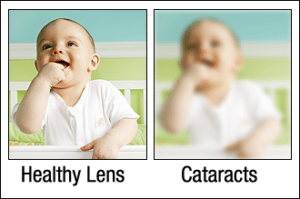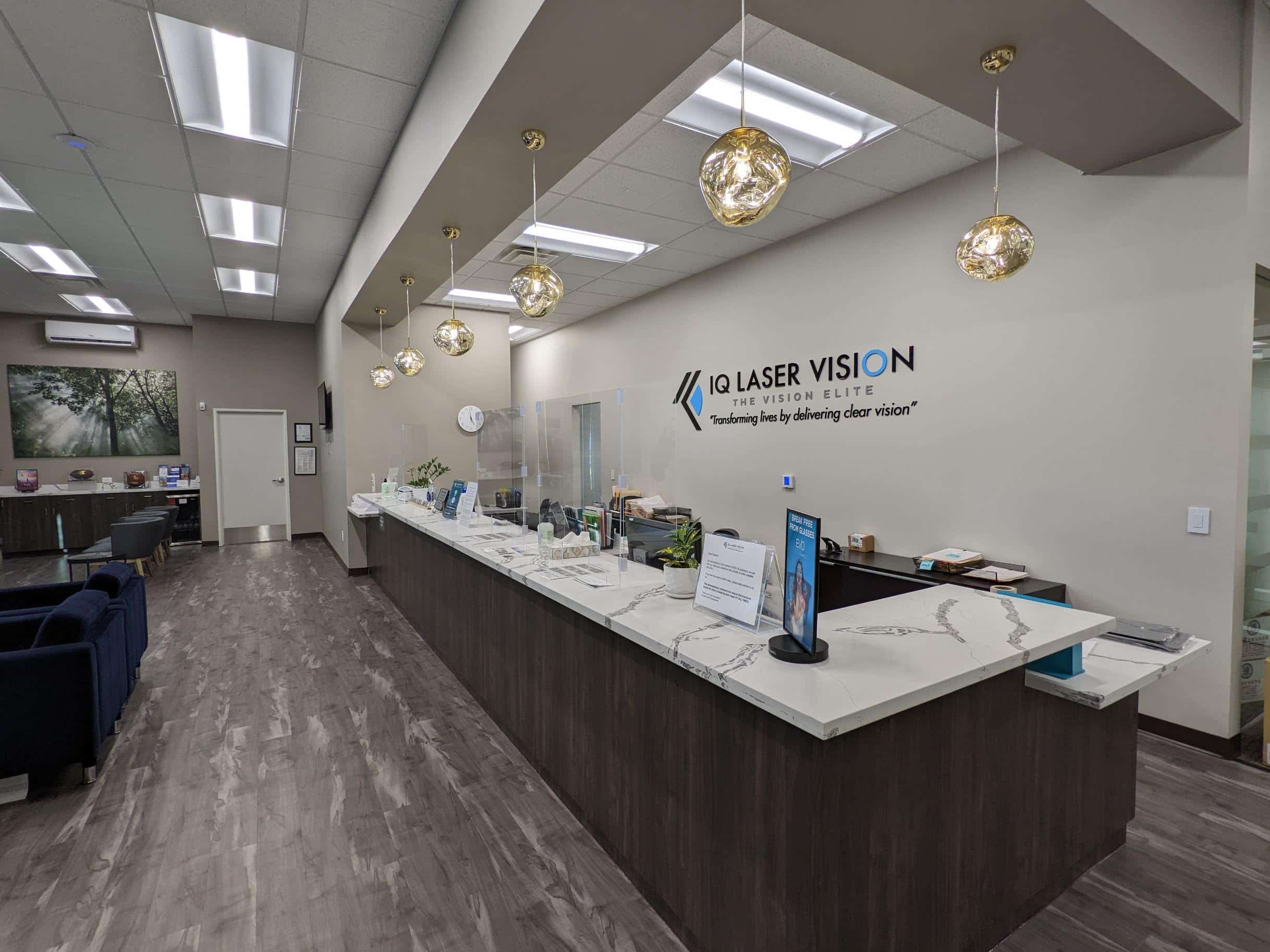Cataracts are something that almost everyone will have to deal with as they get age. You may not even realize you have them at first!
Many things that people assume are signs of aging are some of the signs of having a cataract. Keep reading to find out if there are any symptoms of cataracts to watch out for!
Blurry Vision

Does your vision seem blurry, foggy, or cloudy? Blurry vision, in particular symptom of cataracts.
It occurs because the natural lens is no longer opaque, making it much more challenging to see through. As a result, your vision may seem blurrier than usual. If you have cataracts, your blurry vision will only worsen until you can have cataract surgery to remove them.
Double Vision in One Eye
Have you noticed that you’re seeing double in only one eye? If you’re seeing double, it may be a sign of cataracts.
Unlike double vision, which occurs when your eyes don’t line up correctly, having double vision in only one eye is almost always a sign of cataracts. This form of double vision (called diplopia) happens because the natural lens becomes cloudy.
With a cloudier lens, light entering your eye may start to scatter, leading to the appearance of seeing multiple but incomplete images, aka double vision. The good news is that if you experience double vision, getting cataract surgery will take care of it.
Glare and Halos Around Light Sources

Seeing glare on a sunny day is extremely common, especially living in a warmer climate like California. But if you start noticing glare and halos around light sources, there’s a good chance you have a cataract.
Seeing halos around lights is not always a sign of cataracts and may be a sign of another eye condition like keratoconus or closed-angle glaucoma. You should see your ophthalmologist and find the cause if you start noticing them.
But for those that see glare and halos around lights, this occurs because you may have a posterior subcapsular cataract. These cataracts affect the back of the natural lens. They make it hard to read in dim lighting, may cause glare or halos around lights, and can make it more difficult to see at night.
Symptoms of Cataracts: Injuring Yourself More Due to Impaired Vision

When you can’t see very well, you may notice that your impaired vision gets in the way. Do you find that you fall more because you can’t see?
Does it feel unsafe to try and complete daily chores like cooking or doing laundry because your eyesight is lacking? When you can no longer do the things you love or even everyday tasks, this is often the clearest sign that it’s time to have cataract surgery.
Falling more, tripping, or feeling like your vision is giving out on you is no way to live.
Experiencing Light Sensitivity

Light sensitivity is something that most people experience throughout their life to varying degrees. But if you notice that light makes your eyes feel far more sensitive, it may signify you have cataracts.
Experiencing blurry vision along with light sensitivity can make anyone feel uncomfortable. In the short term, you can look into wearing wide-brimmed hats and sunglasses while outdoors to combat light sensitivity.
You may also find that using more light helps when you need to complete tasks that require fine focus, like reading or sewing. In the long term, these things can only help for so long. Eventually, you’ll have to decide when to have cataract surgery, which will change your life for the better.
Noticing Your Prescription Changes More Frequently
Do you wear glasses? You may find that your prescription usually changes every year.
But if you’ve noticed that your prescription is now changing more frequently, you may have cataracts. It can take many years or even decades for cataracts to form and develop.
When cataracts are still small, you may not notice them or realize they’ve affected your vision. But as they continue developing, this is when your prescription will begin shifting.
The more your cataract grows, the cloudier the natural lens will become. Eventually, it will get to a point where your prescription will no longer be able to account for any changes to your vision.
Once this occurs, it won’t matter if you change your prescription because you’ll no longer be able to sharpen your vision with glasses or contacts until you have the cataract removed during cataract surgery.
Seeing Colors as More Yellow than They Used to Be

Does it feel like everything you look at is now yellow? Have colors lost their vibrancy and look muted instead of bright?
There’s an excellent chance you’re not imagining it, and it’s not in your head. Noticing that colors look more yellow than they used or are muddier than they should be could be a sign of having cataracts.
The simple reason? When you develop a cataract, it turns the once crystalline and transparent natural lens opaque. Over time, the natural lens goes from being see-through to more yellow.
As this happens, your vision will also start to change. Things that you know are white will begin to look yellow.
Colors, in general, will no longer look as bright and vibrant as they once did as your cataract continues developing. Eventually, you may notice that everything has a yellow or brown tint due to your cataract becoming more prominent.
Symptoms of Cataracts: Finding it More Challenging to Drive at Night

Being able to drive at night is convenient, especially if you need to run a quick errand or pick up something at the store before making dinner the next day. But you may have cataracts if you’ve noticed that driving at night has become a white knuckle event because of glare and halos from oncoming traffic and streetlights.
What causes this impaired vision late at night when you have cataracts? A lot of it is because of how light enters the eye.
When you have a cataract, less light can enter the eye, and to compensate, people with cataracts find they need more light to see. Cataracts also lead to decreased contrast sensitivity, which makes it far more challenging to deal with glare from oncoming traffic, halos around streetlights, or even feeling unsafe if it’s raining.
The short-term solution? If you feel unsafe driving at night, find someone to do it for you. Then, make an appointment at IQ Laser Vision in Rowland Heights to learn more about cataract surgery and your options. Please note that this location is moving within the next week and is something that prospective patients should keep in mind while scheduling appointments.
Cataract surgery will restore your independence and make you feel like you again.























